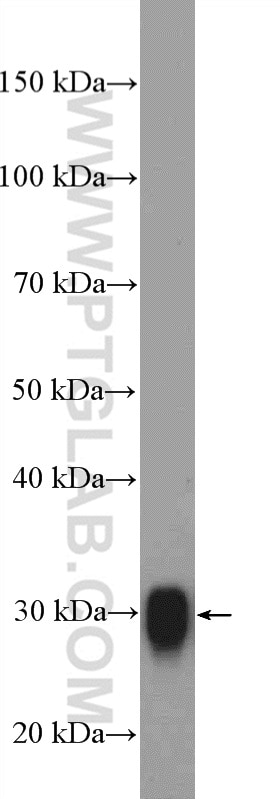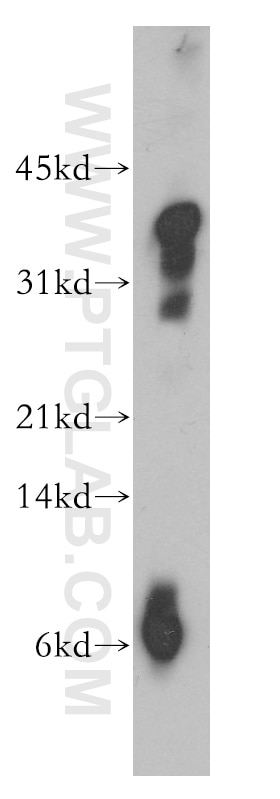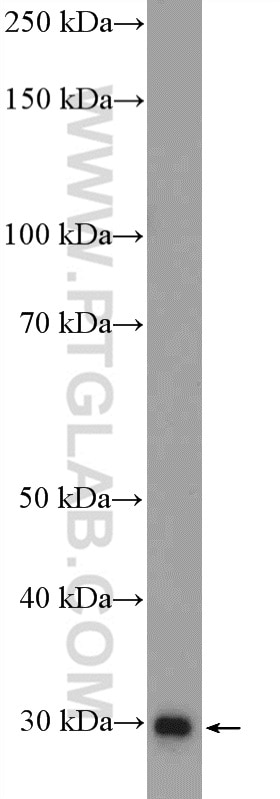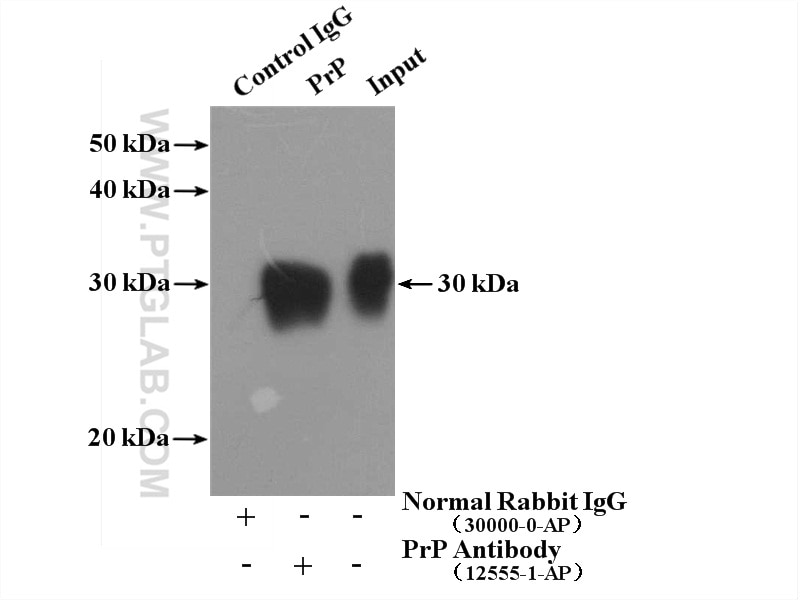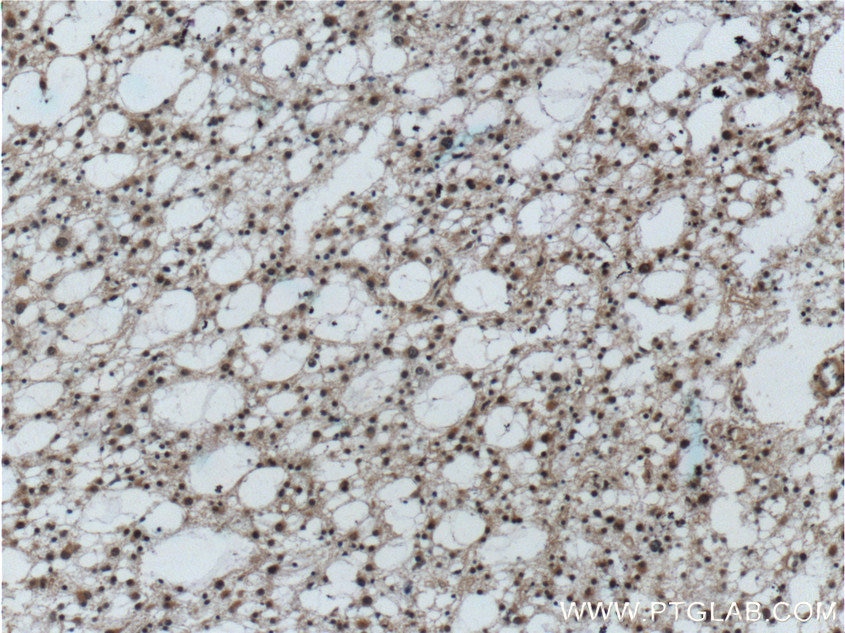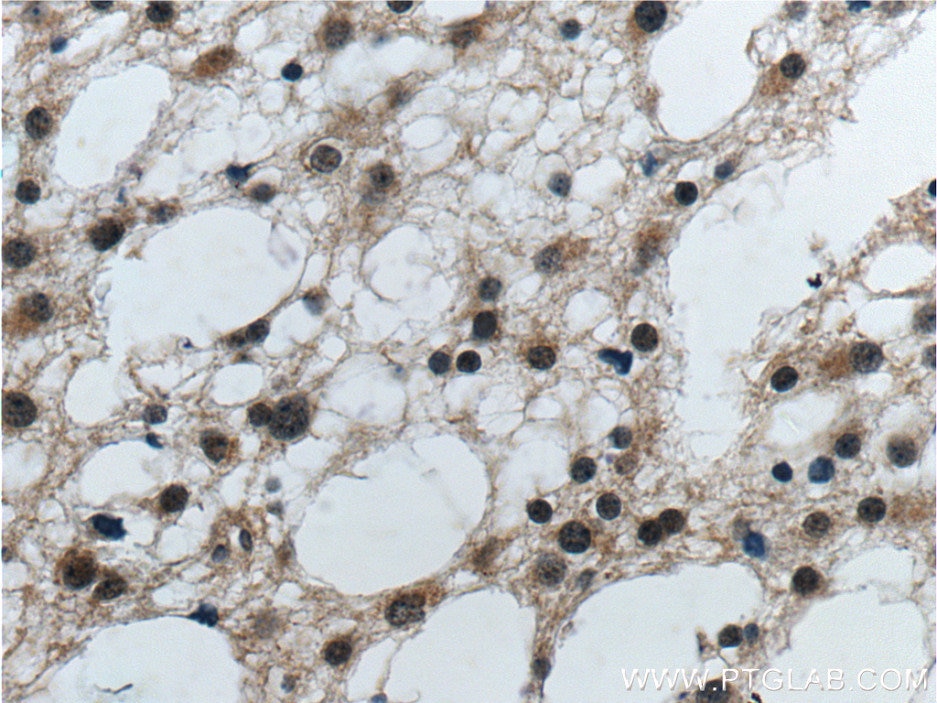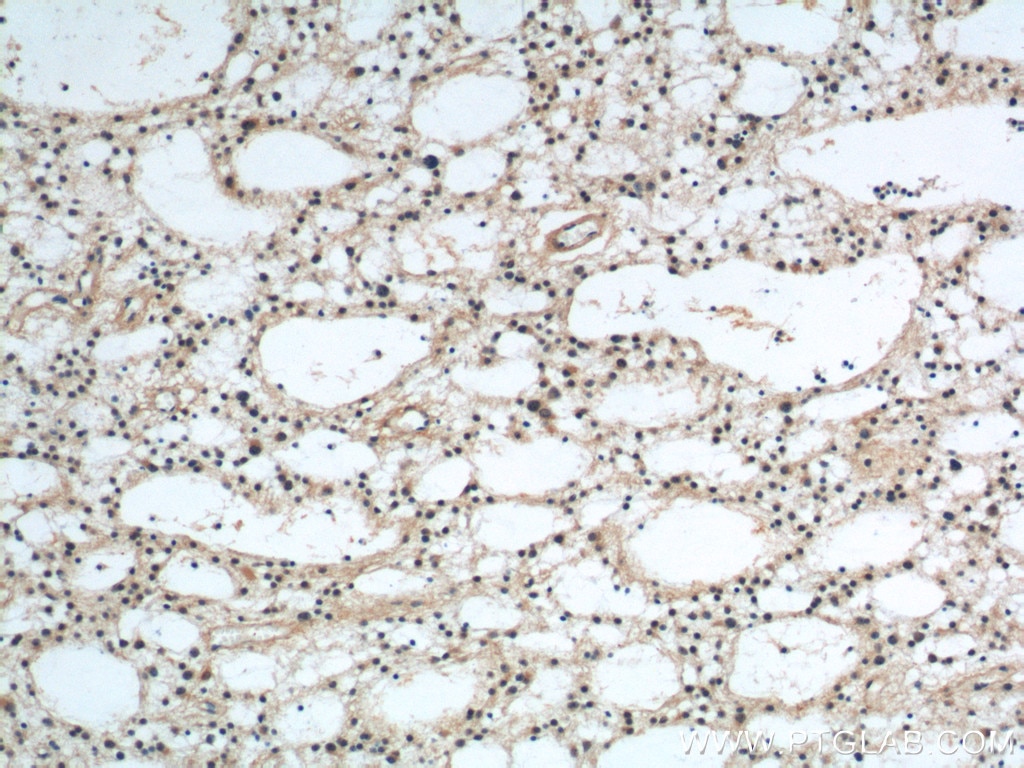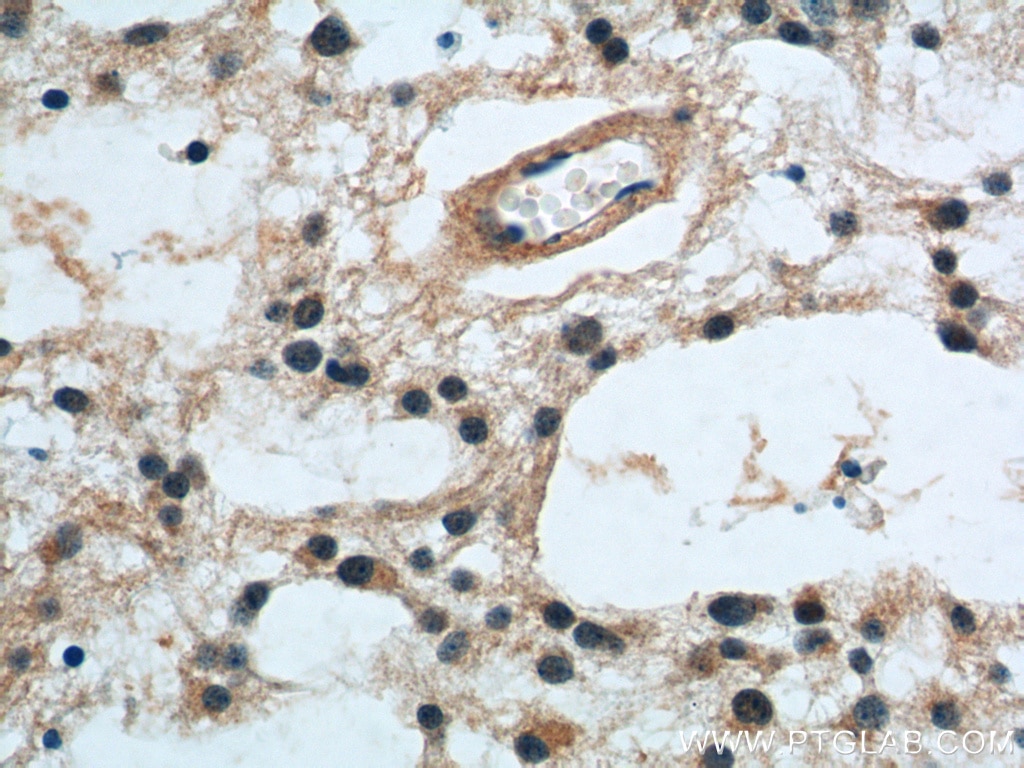Anticorps Polyclonal de lapin anti-Prion protein PrP/CD230
Prion protein PrP/CD230 Polyclonal Antibody for WB, IHC, IP, Indirect ELISA
Hôte / Isotype
Lapin / IgG
Réactivité testée
Humain, rat, souris
Applications
WB, IHC, IP, Indirect ELISA
Conjugaison
Non conjugué
N° de cat : 12555-1-PBS
Synonymes
Galerie de données de validation
Informations sur le produit
12555-1-PBS cible Prion protein PrP/CD230 dans les applications de WB, IHC, IP, Indirect ELISA et montre une réactivité avec des échantillons Humain, rat, souris
| Réactivité | Humain, rat, souris |
| Hôte / Isotype | Lapin / IgG |
| Clonalité | Polyclonal |
| Type | Anticorps |
| Immunogène | Prion protein PrP/CD230 Protéine recombinante Ag3257 |
| Nom complet | prion protein |
| Masse moléculaire calculée | 34 kDa |
| Poids moléculaire observé | 30 kDa |
| Numéro d’acquisition GenBank | BC022532 |
| Symbole du gène | PrP |
| Identification du gène (NCBI) | 5621 |
| Conjugaison | Non conjugué |
| Forme | Liquide |
| Méthode de purification | Purification par affinité contre l'antigène |
| Tampon de stockage | PBS only |
| Conditions de stockage | Store at -80°C. 20ul contiennent 0,1% de BSA. |
Informations générales
Prion protein (PRNP) is a ubiquitous membrane glycoprotein whose abnormal self-replicating, misfolded form is widely believed to cause several central nervous system disorders, collectively known as Transmissible Spongiform Encephalopathies (TSE). Prion diseases are TSEs, attributed to conformational conversion of the cellular prion protein (PrPC) into an abnormal conformer that accumulates in the brain. The two isoforms, PrPC and PrPS, have the same primary amino acid sequence and only differ in conformation. While PrPC is composed of 42% α-helix and only 3% β-sheet, PrPSc is composed of 30% α-helix and 43% β-sheet. PrPC converts to its pathogenic isoform when the region corresponding to the residues 108-144 fold into β-sheets. PrPC is very soluble in detergents and easily digested by proteases while the PrPSc is insoluble in detergents and resistant to protease digestion. Prion diseases exist in infectious, sporadic, and genetic forms.
